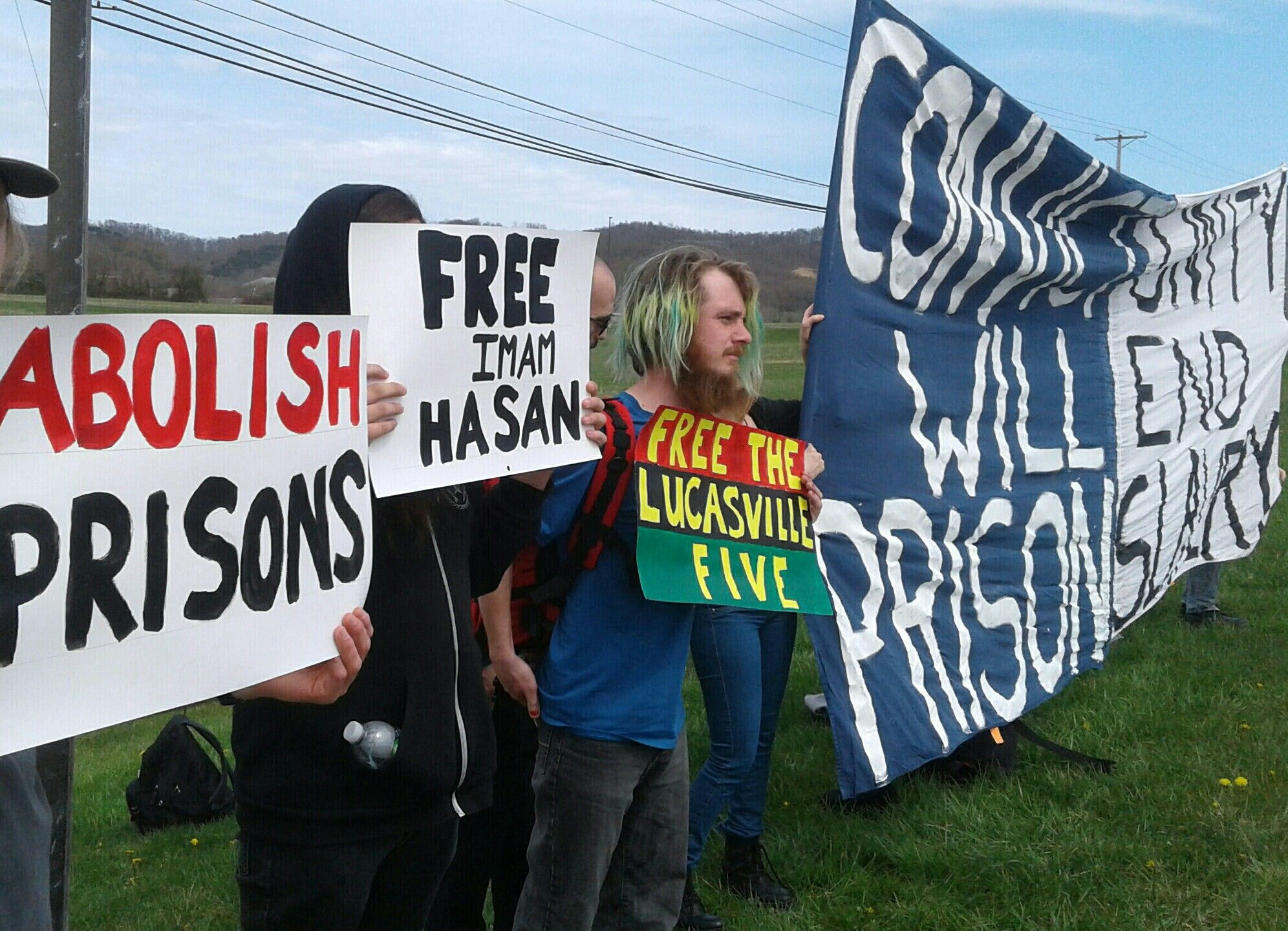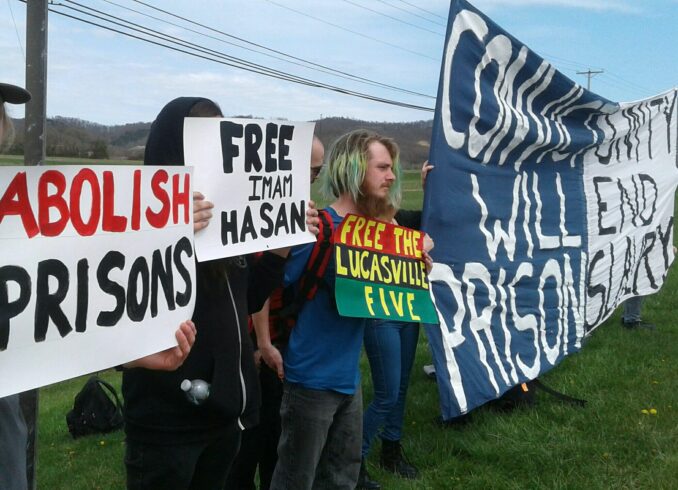

Protesters commemorate 25th anniversary of Lucasville Uprising outside Southern Ohio Correctional Facility, Lucasville, Ohio, Oct. 21, 2018. Photo: Central Ohio Incarcerated Workers Organizing Committee
Cleveland
April 11 was the 30th anniversary of the 1993 prison rebellion at the Southern Ohio Correctional Facility in Lucasville, Ohio.


Protesters commemorate 25th anniversary of Lucasville Uprising outside Southern Ohio Correctional Facility, Lucasville, Ohio, Oct. 21, 2018. Photo: Central Ohio Incarcerated Workers Organizing Committee
The heroic uprising began with what was intended as a nonviolent protest against forcing Sunni Muslim prisoners to take a tuberculosis test involving the ingestion of an alcoholic substance — a violation of their religion. Other aggravating conditions that led to a full-scale rebellion included poor food and medical care; frequent guard violence and guard-instigated violence between incarcerated men, which had led to a number of deaths; overcrowding; and allowing only one phone call to loved ones each year.
After the uprising five men — Imam Siddique Abdullah Hasan, Keith Lamar (aka Bomani Shakur), Nameer Mateen (aka James Were), Jason Robb and George Skatzes — were falsely convicted of murder and sentenced to death for the killing of a guard, Robert Vallandingham, and, in Skatzes’ case, taking a prisoner hostage during the siege. Lamar now has an execution date: Nov. 16, 2023.
Dozens more were scapegoated for participating in the uprising, framed-up on false charges and given long sentences. Most are still in prison.
The rebellion, which lasted 11 days, united Black, Brown and white prisoners. Of the five Lucasville defendants on death row, three are Black and two are white.
Peace negotiators scapegoated
Over the years supporters of the Lucasville defendants have offered evidence that the real killer of Vallandingham was likely the state prosecutor’s key witness against the accused. This point was made in D. Jones’ 2013 documentary, “The Shadow of Lucasville.”
The state singled out prisoner leaders who were involved in negotiating a 21-point surrender agreement. Yet it was actually the efforts of these leaders that prevented further loss of life, beyond the guard and the nine prisoners who were killed. One of the 21 points was that there would be “no retaliation,” an agreement that was flagrantly violated.
Supporters of the Lucasville defendants are holding multiple events in Ohio to mark the anniversary. A “Justice for Keith Lamar” jazz concert drew a packed house at a popular music venue on Oct. 14. Musicians from different countries, led by pianist Albert Marquès, have been performing around the world in pieces featuring Lamar’s spoken word artistry.
Through Lamar’s work, his bravery in the face of a possible execution this year shines through. While there is currently a moratorium on executions in Ohio following several botched lethal injections, Gov. Mike DeWine could resume executions if an alternate method of execution is approved by the Ohio General Assembly. The governor, a death penalty supporter, has postponed until 2026 all executions scheduled between now and October 2023 — but those falling later, including Lamar’s, have not been postponed!
Clevelanders who have supported the Lucasville defendants over the years used the occasion of the anniversary to reconnect on April 15. More events in Akron, Kent, Youngstown and other Ohio cities are planned later in April. Youngstown is the location of the Ohio State Penitentiary where most of the Lucasville defendants, including Hasan, Lamar, Mateen and Robb, are held.
The epic struggle of the Palestinian people against the full weight of U.S. imperialism and…
The following report comes from the Bronx Anti-War Coalition organizers on a protest held in…
In the Canadian federal elections held on April 28, the Liberals won with 169 seats…
The following is Part 2 of a talk given by the author to a meeting…
Boston Students, professors and workers are confronting the Trump administration’s fascist crackdown at universities across…
Philadelphia Within days of Swarthmore students reviving a pro-Palestinian encampment on April 30, police arrested…